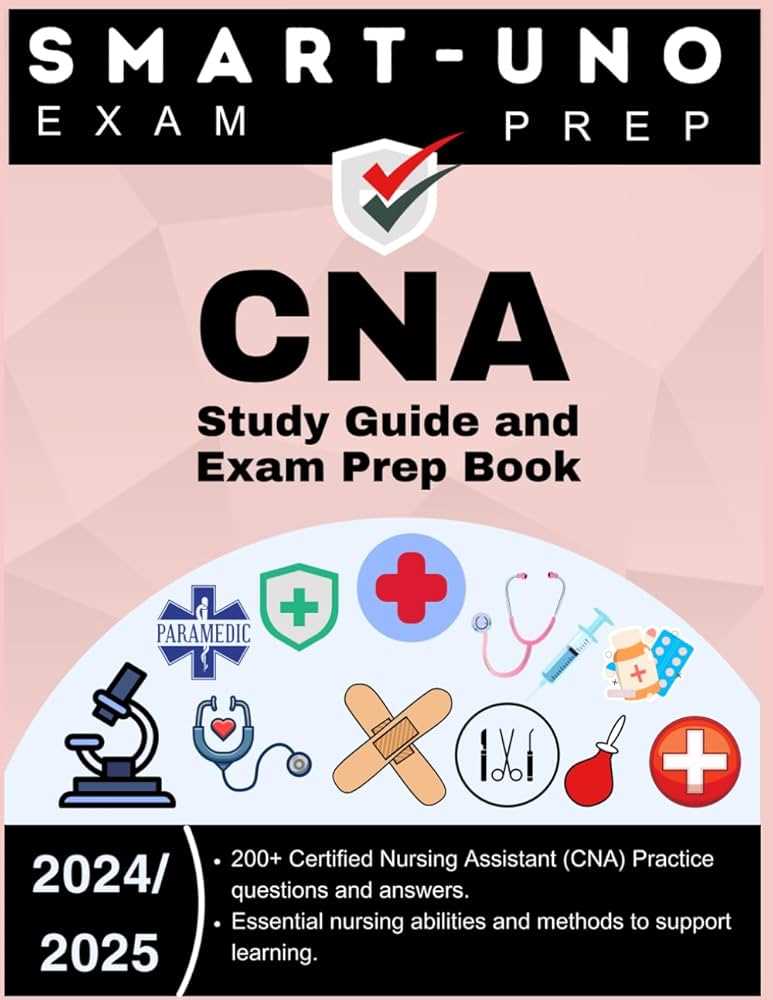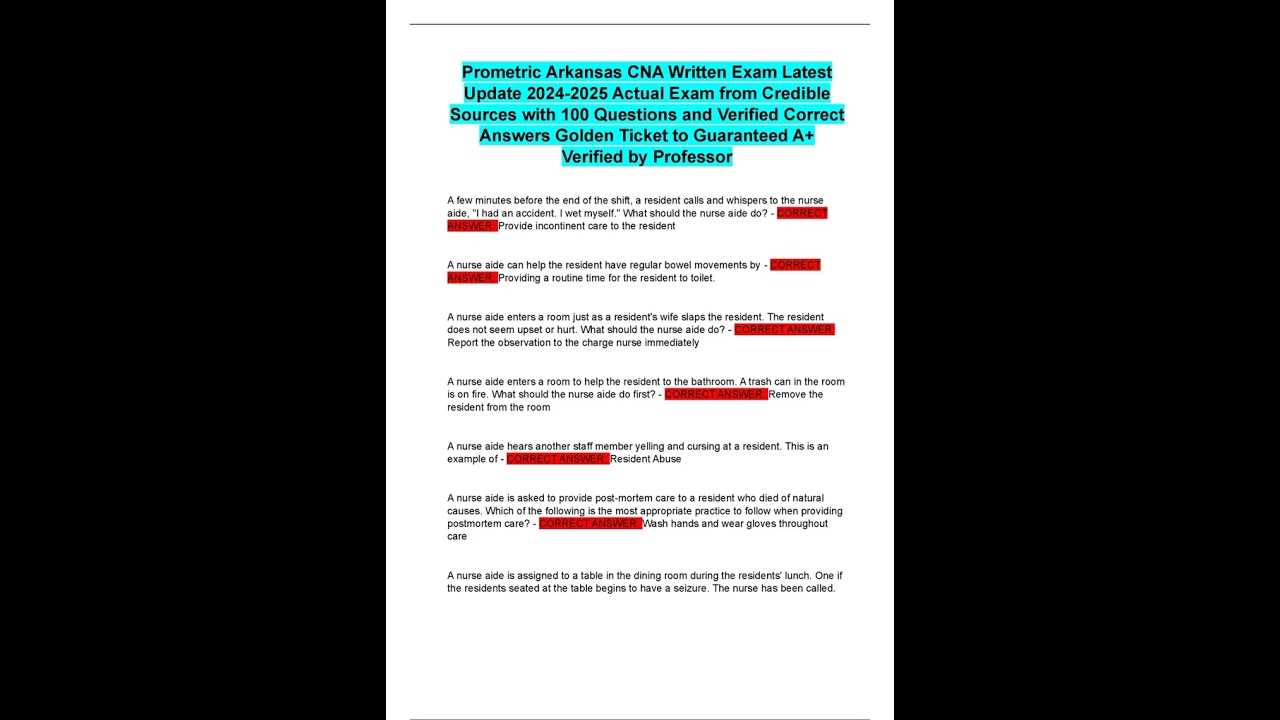| Specialized Sections |
Focuses on detailed topics like hygiene protocols |
Effective Strategies to Reduce Exam Stress
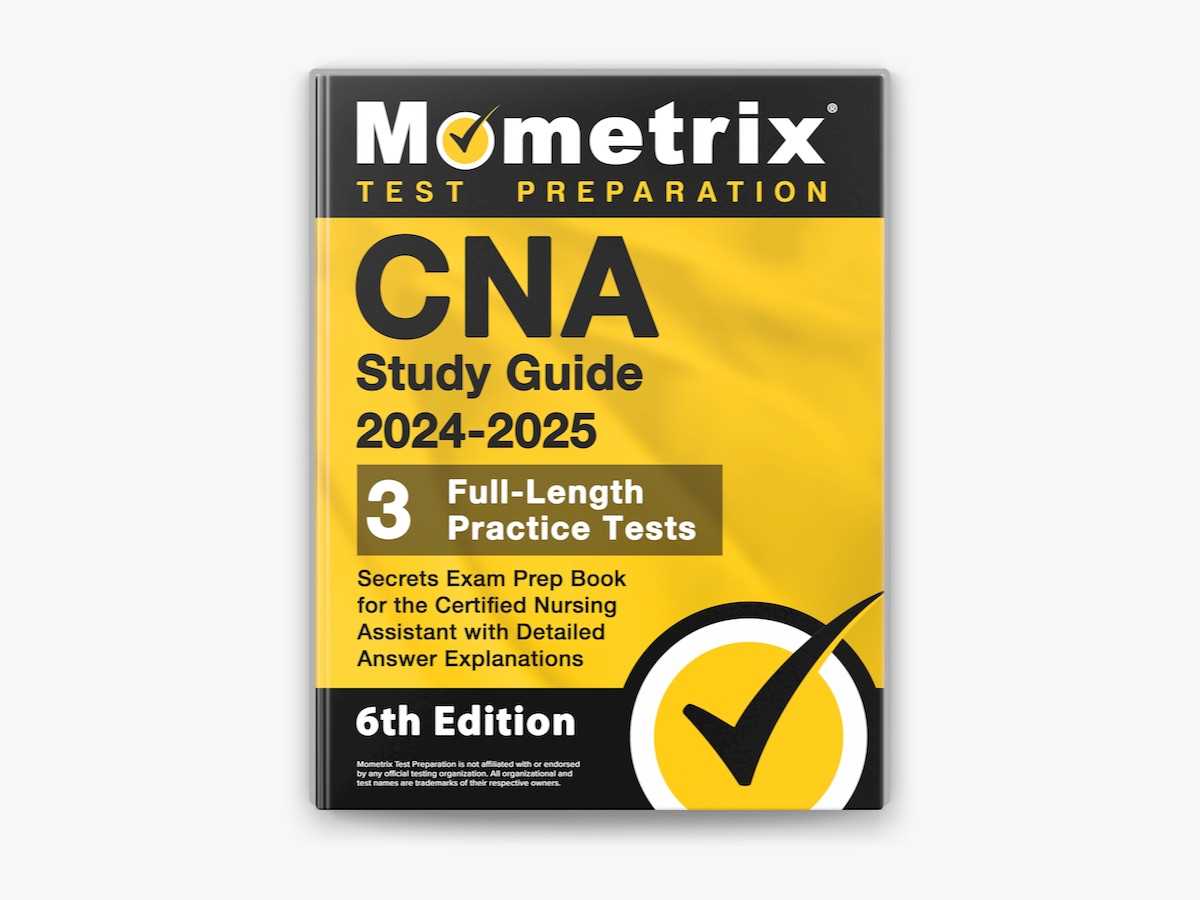
Managing anxiety is a key component of successful test preparation. By implementing practical techniques to stay calm and focused, you can improve your performance and approach the challenge with confidence.
Start by creating a structured study schedule that balances preparation with breaks. Consistent, manageable sessions help you retain information better and prevent burnout. Incorporate relaxation techniques, such as deep breathing or meditation, to maintain a calm mindset during study sessions and on the test day.
Practicing with sample questions in a simulated environment can also build familiarity with the test format, reducing uncertainty. Additionally, ensure you get adequate rest, eat nutritious meals, and stay hydrated, as physical well-being plays a significant role in managing stress effectively.
Common Mistakes to Avoid During Testing
Awareness of common pitfalls can help you perform your best and avoid unnecessary errors. By recognizing these mistakes ahead of time, you can stay focused and confident during the assessment.
Rushing Through the Questions
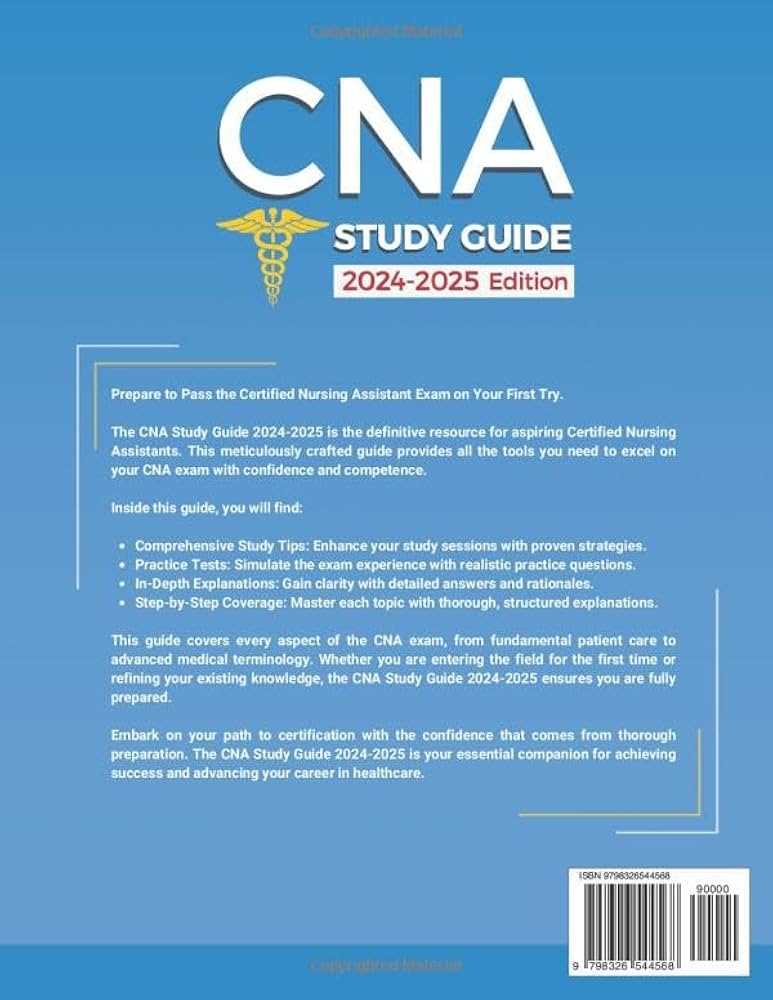
One of the most frequent mistakes is rushing through the questions without reading them carefully. This can lead to misinterpretation and careless mistakes. To avoid this:
- Take the time to fully read each question and answer choices.
- Look for keywords or instructions that indicate what is being asked.
Neglecting to Review Your Answers
Another mistake is failing to review your responses before submitting the test. Skipping this step can result in missed errors. Here’s how to avoid it:
- Allocate time at the end of the test to go back and check your answers.
- Look for obvious mistakes, like marking the wrong choice or misreading the question.
By staying mindful of these mistakes, you can improve your performance and ensure you complete the assessment with greater accuracy. Proper preparation and attention to detail are key to success.
How to Practice for the CNA Exam
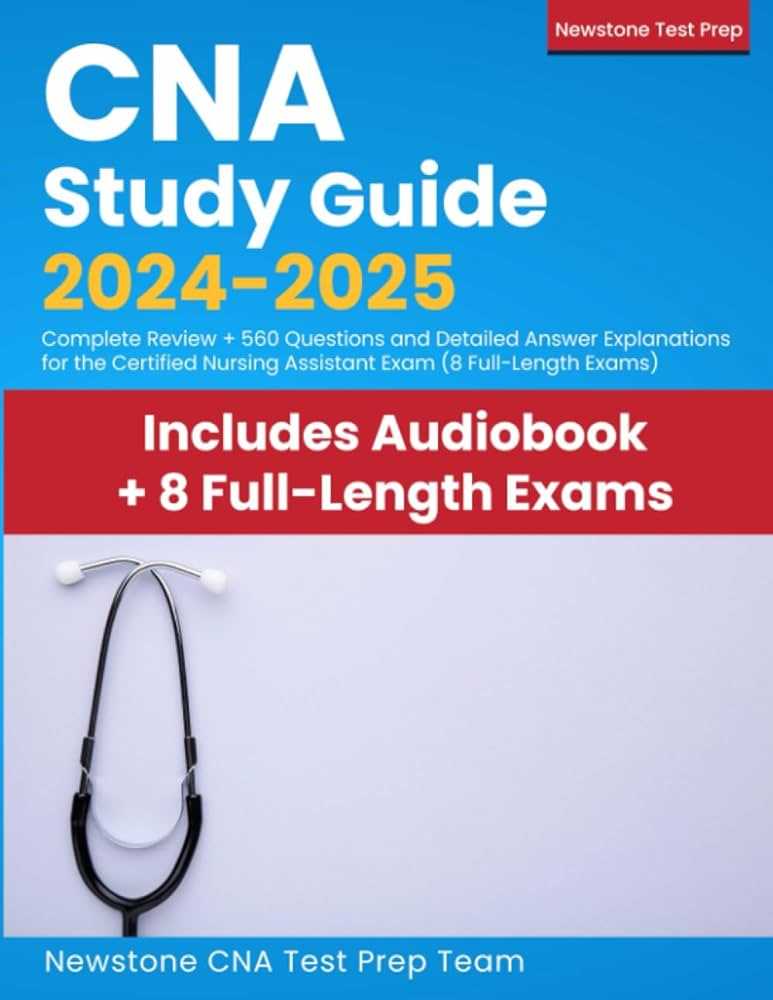
Effective practice is the key to building confidence and mastering the necessary skills for the assessment. Focused preparation through various methods ensures you are well-equipped for the test day.
Start by reviewing the core content areas, such as patient care techniques, safety protocols, and medical terminology. Use study guides, practice questions, and flashcards to reinforce your knowledge. Testing yourself regularly helps solidify your understanding and highlights areas where you need more focus.
Additionally, consider simulating the testing environment. Time yourself while answering practice questions to get comfortable with the pacing. If possible, work with a study group or a mentor to discuss difficult concepts and share insights. Engaging in hands-on practice, such as performing skills and procedures, will also ensure you’re prepared for the practical portion of the assessment.
Remember, consistent and varied practice will help reduce anxiety and increase your readiness for success. Stay focused and stay motivated, as each practice session brings you one step closer to achieving your goal.
Key Differences Between State Tests
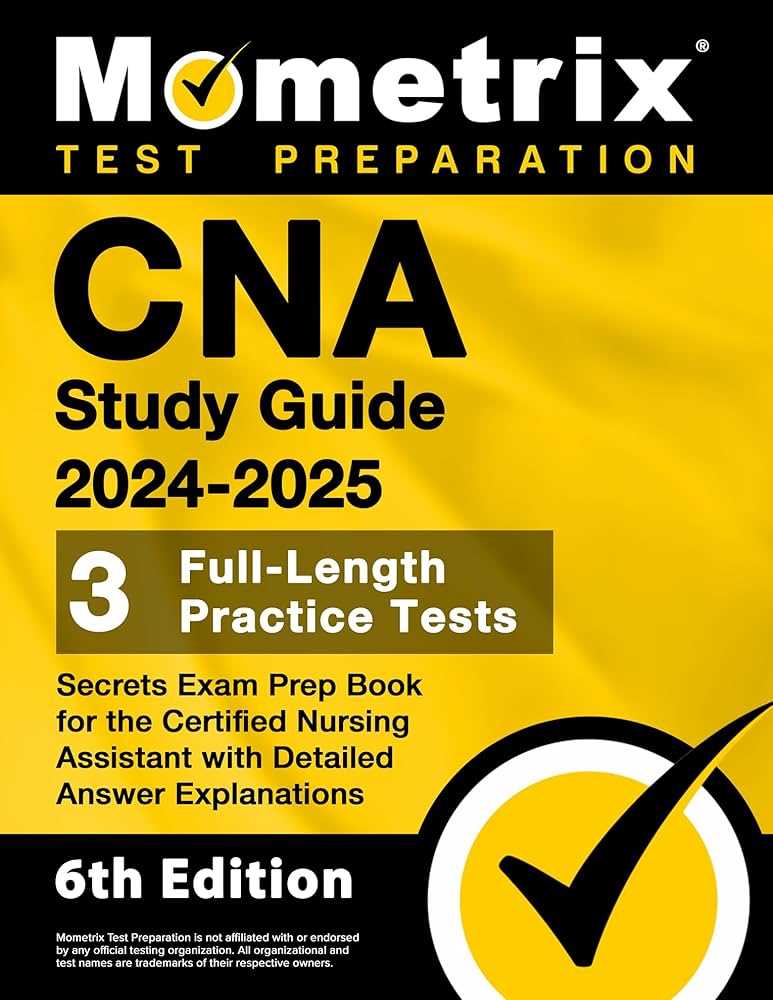
Understanding the variations between different state assessments is crucial for adequate preparation. Each state may have distinct requirements and formats, which can affect the way you approach your studies.
Format Variations
One of the primary differences across states lies in the format of the test. While some states may emphasize written questions, others might focus more on practical skills. Be sure to research the specific format used in the state where you plan to take the test. This will allow you to tailor your preparation to meet the exact expectations.
Content Focus
Different states also have different content areas that are prioritized in their assessments. While some may focus on patient care procedures, others might require a deeper understanding of legal and ethical issues. Review the state’s specific guidelines to identify which topics are most heavily weighted in the assessment.
By familiarizing yourself with these differences, you can ensure you’re fully prepared for the unique challenges of each state’s test.
Top Resources for CNA Exam Preparation
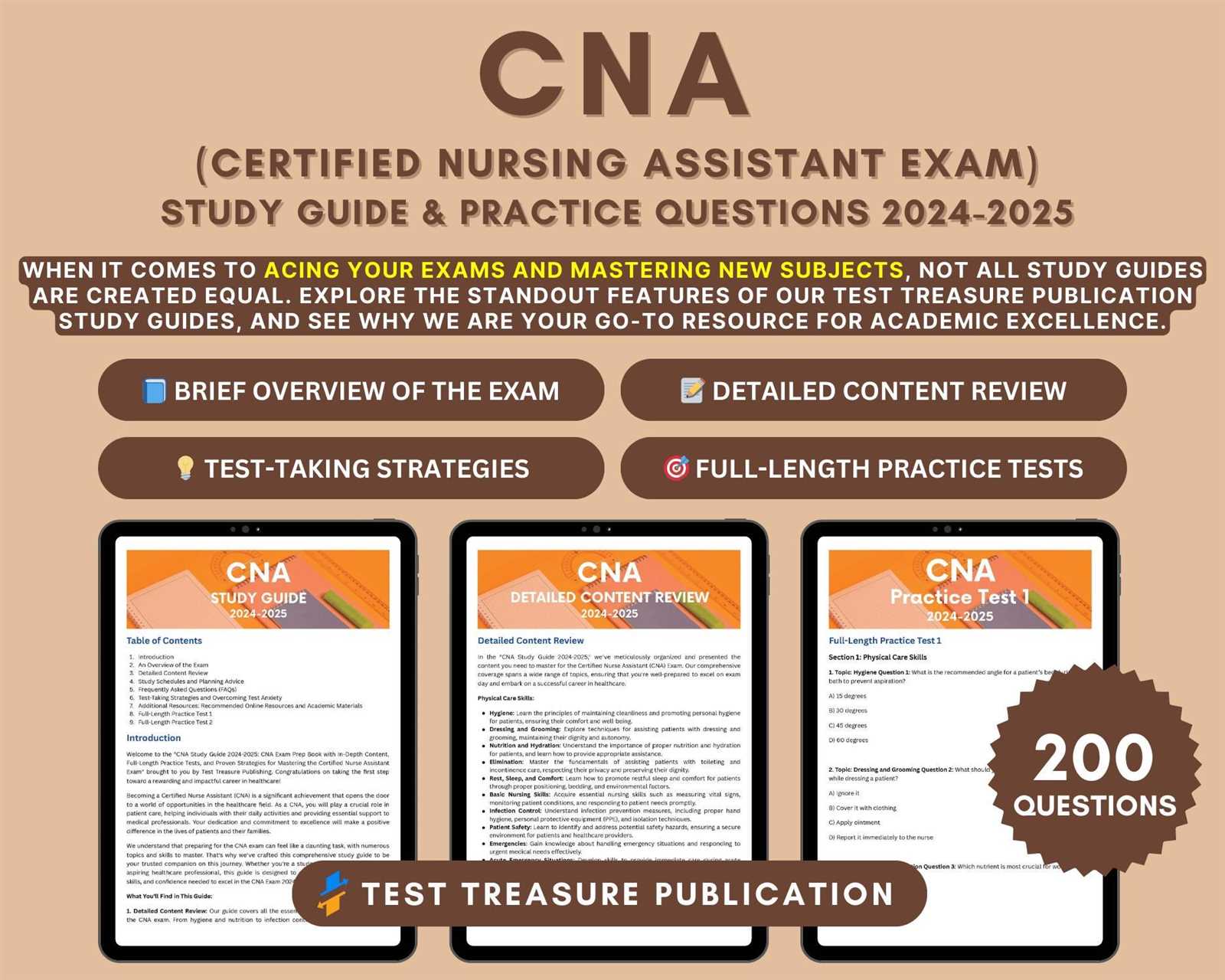
Having the right materials at your disposal can make a significant difference when preparing for the certification test. A variety of resources are available to help you sharpen your skills, build your knowledge, and boost your confidence as you approach the assessment.
Study Guides and Books are essential for foundational knowledge. Comprehensive guides often break down the most important topics and provide detailed explanations, which are invaluable for thorough understanding. Look for updated editions that reflect current standards and procedures.
Practice Tests are an excellent way to gauge your preparedness. These tests simulate the actual conditions of the assessment, helping you get comfortable with the format and time constraints. Regular practice can also help identify areas that need further attention.
Online Courses and Tutorials offer a flexible way to learn and review material. Many websites provide video tutorials, interactive lessons, and quizzes that allow you to learn at your own pace. These can be especially useful for visual learners or those who prefer to study in smaller segments.
Hands-on Practice is equally crucial for mastering practical skills. If possible, find a local training program or simulate real-world scenarios. Practicing physical tasks, such as patient care techniques or safety procedures, will prepare you for the practical portion of the assessment.
Utilizing these resources effectively will help you approach the test with greater ease and confidence. The more you practice and immerse yourself in the material, the better prepared you’ll be for success.
Managing Time During the Written Test
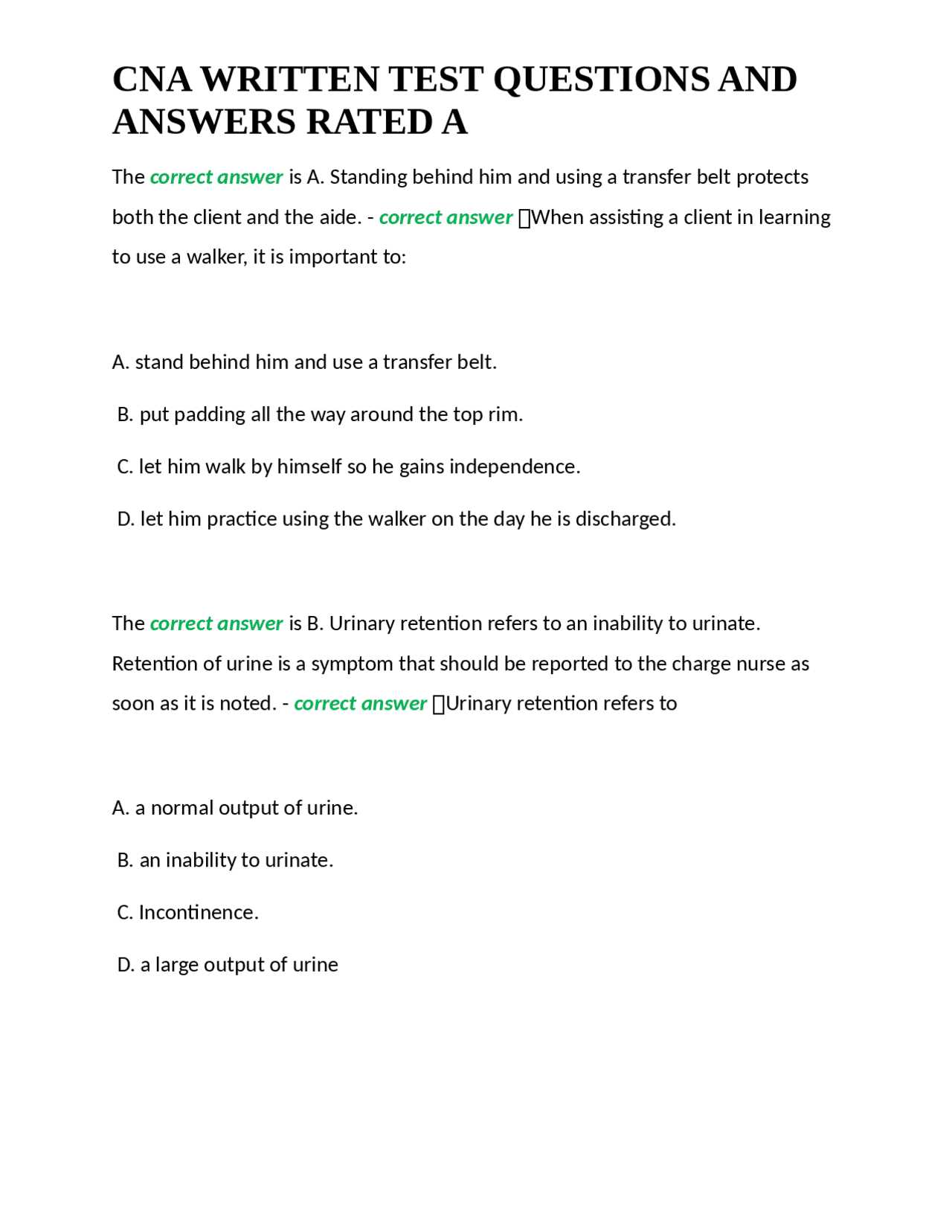
Efficient time management is crucial when facing an assessment that includes multiple-choice questions, short answers, or case studies. Developing a strategy to maximize your time ensures that you can complete all sections without feeling rushed, allowing for careful consideration of each question.
Establish a Time Allocation Plan
Before starting the test, divide the time available by the number of sections or questions. Set a specific time limit for each part, and stick to it. This approach helps prevent spending too much time on any one question, ensuring that you leave no section incomplete.
Read Questions Carefully
Taking a moment to read each question thoroughly is essential. Misunderstanding a question can lead to wasting time on irrelevant details. After reading, quickly outline your thoughts or approach to ensure you’re on the right track. If you’re unsure about an answer, move on and return to it later if time allows.
By practicing time management techniques, you can enhance your performance and approach the test with more focus and clarity. Prioritizing time efficiency, while still maintaining accuracy, helps ensure that all areas are covered in the given time frame.
Critical Thinking Tips for CNA Questions
Critical thinking is an essential skill for tackling challenging questions that require analysis and judgment. Instead of rushing through, it is important to carefully evaluate each scenario, think logically, and apply knowledge effectively to choose the most appropriate response. Developing this skill allows for better decision-making under pressure and ensures the most accurate answers are selected.
Steps to Improve Critical Thinking
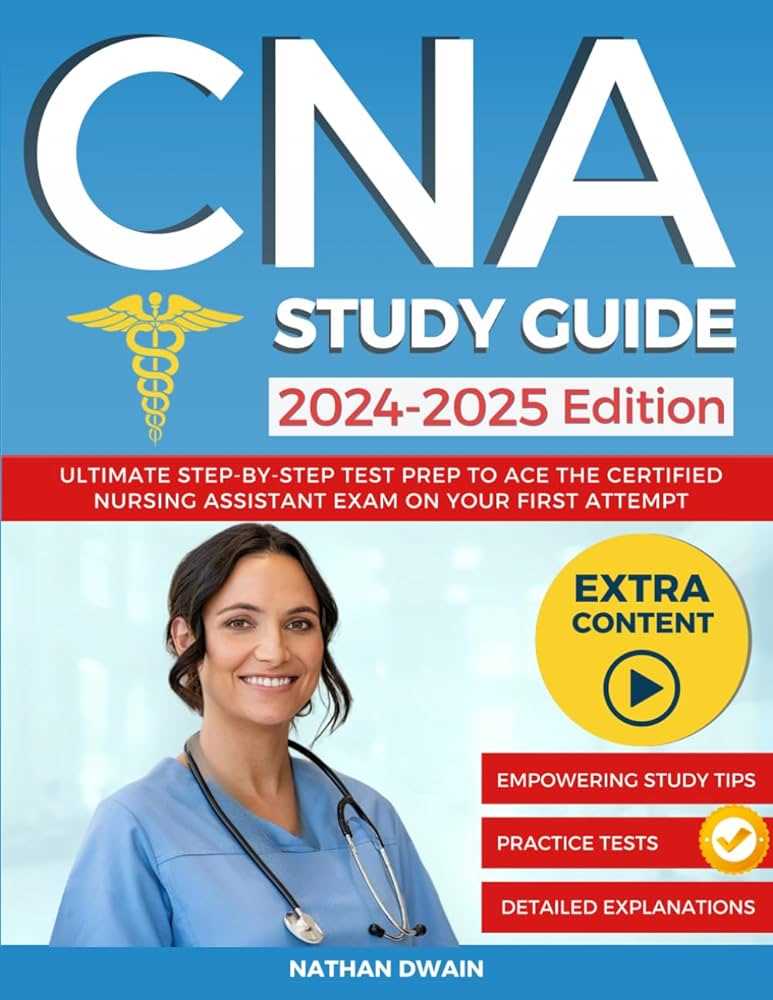
Here are some strategies to help sharpen your critical thinking skills when answering questions:
- Understand the Question: Carefully read each question and identify what is being asked before considering the options. Focus on keywords and the underlying message.
- Analyze the Options: Look at all the possible answers. Eliminate clearly incorrect answers to narrow down your choices and focus on the most logical ones.
- Consider Consequences: Think about the potential outcomes of each choice. Reflect on how each answer aligns with best practices or common sense in the field.
Practical Applications
In practice, critical thinking can be applied to different types of questions, from patient care scenarios to ethical dilemmas. By actively engaging your mind and applying these steps, you’ll improve your ability to reason through the complexities of each situation.
Preparing for the Exam Day Checklist
Proper preparation the day before and on the morning of your assessment can significantly impact your performance. Being well-prepared reduces anxiety and ensures that you can focus on answering questions with confidence. Here is a checklist to help you stay organized and make the most of the day.
Pre-Assessment Preparation
- Review Key Topics: Go over your notes or study materials to refresh your memory on important concepts and procedures.
- Ensure Required Documents: Double-check that you have all necessary identification, registration materials, and any other required documents.
- Prepare Your Supplies: Pack essentials such as pens, pencils, and any other tools needed for the assessment.
On the Day of the Assessment
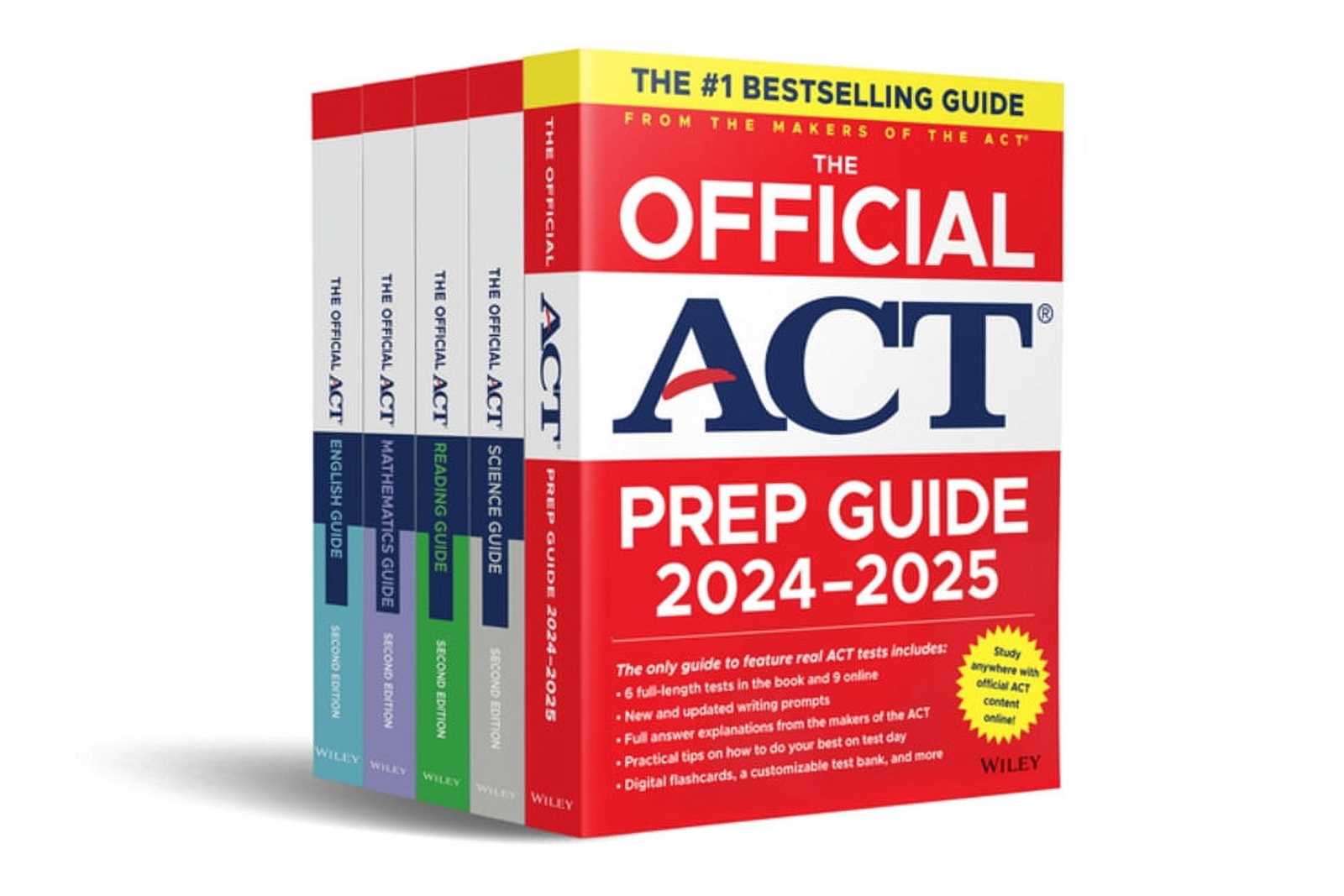
- Get a Good Night’s Sleep: Ensure you rest well the night before so you are mentally and physically alert.
- Eat a Healthy Breakfast: Fuel your body with a balanced meal to maintain energy levels throughout the day.
- Arrive Early: Give yourself plenty of time to avoid rushing and reduce stress before the start.
- Stay Calm and Confident: Take deep breaths and trust in your preparation. Focus on one question at a time.
By following this checklist, you can reduce unnecessary stress and approach your assessment with clarity and readiness, increasing your chances of success.
Reviewing Past Test Papers
One of the most effective ways to prepare for your upcoming assessment is by reviewing past test papers. This practice helps you become familiar with the types of questions that may appear, the format of the test, and how to manage your time efficiently. By analyzing previous papers, you can identify patterns, understand what areas require more attention, and improve your problem-solving skills.
Benefits of Reviewing Previous Papers

- Understand Question Types: Get accustomed to the various formats, such as multiple-choice, true/false, or short-answer questions.
- Improve Time Management: Learn how much time to allocate to each section, helping you pace yourself during the actual assessment.
- Identify Key Topics: Spot recurring themes or subjects that are commonly tested, allowing you to prioritize your study efforts.
How to Effectively Review Past Papers
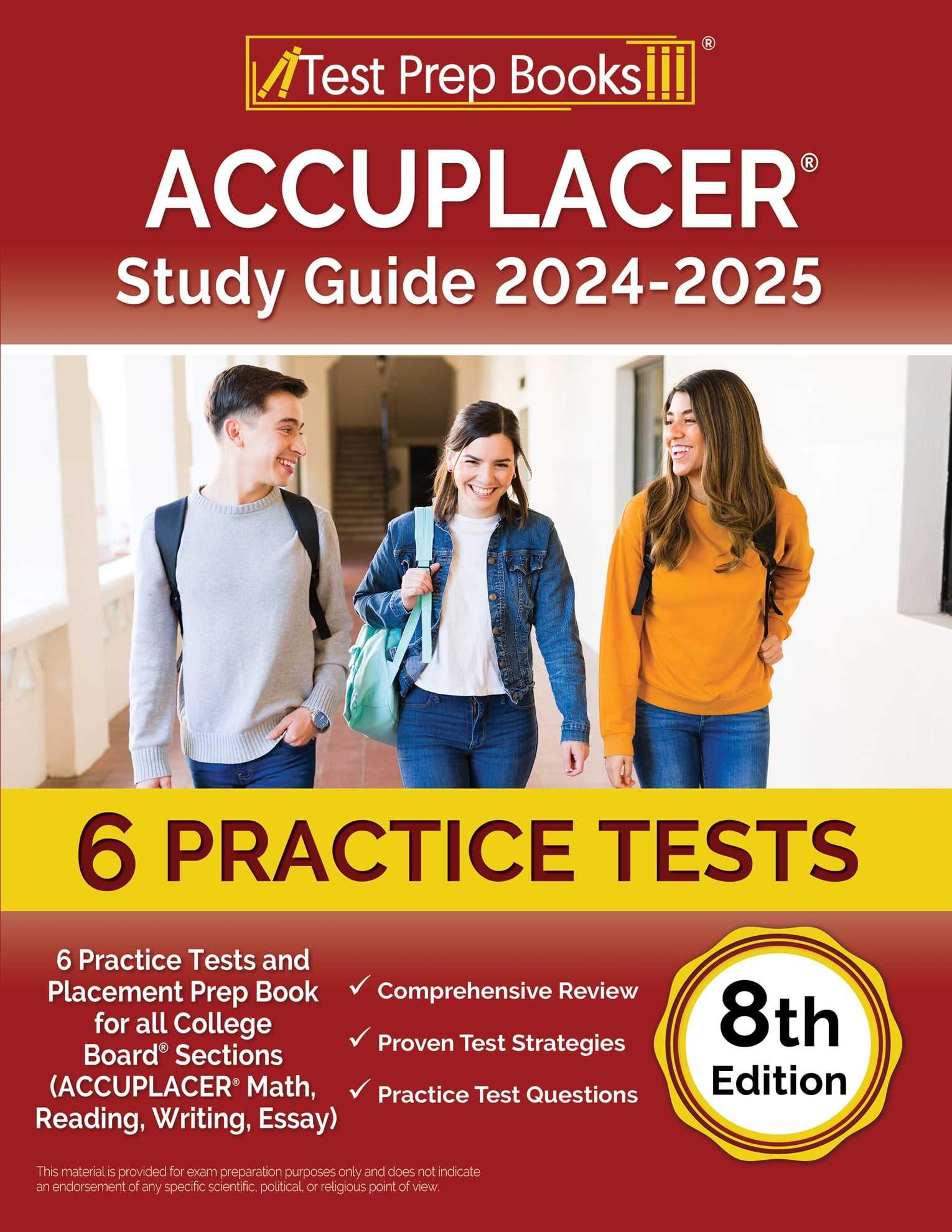
- Simulate Test Conditions: Try to complete the practice papers within the allotted time frame to replicate the real test environment.
- Analyze Your Mistakes: After completing each paper, go through your incorrect answers to understand your mistakes and improve.
- Seek Feedback: If possible, discuss your answers with peers or instructors to gain different perspectives and insights.
By reviewing past papers regularly, you’ll build confidence in your abilities, enhance your test-taking strategies, and improve your readiness for the actual assessment.
Building Confidence for Test Success
Confidence plays a crucial role in performing well during an assessment. When you feel prepared and self-assured, you’re more likely to approach the test with a positive mindset and make better decisions under pressure. Building this confidence involves a combination of proper preparation, practice, and maintaining a healthy mental attitude throughout the process.
Key Strategies to Boost Confidence
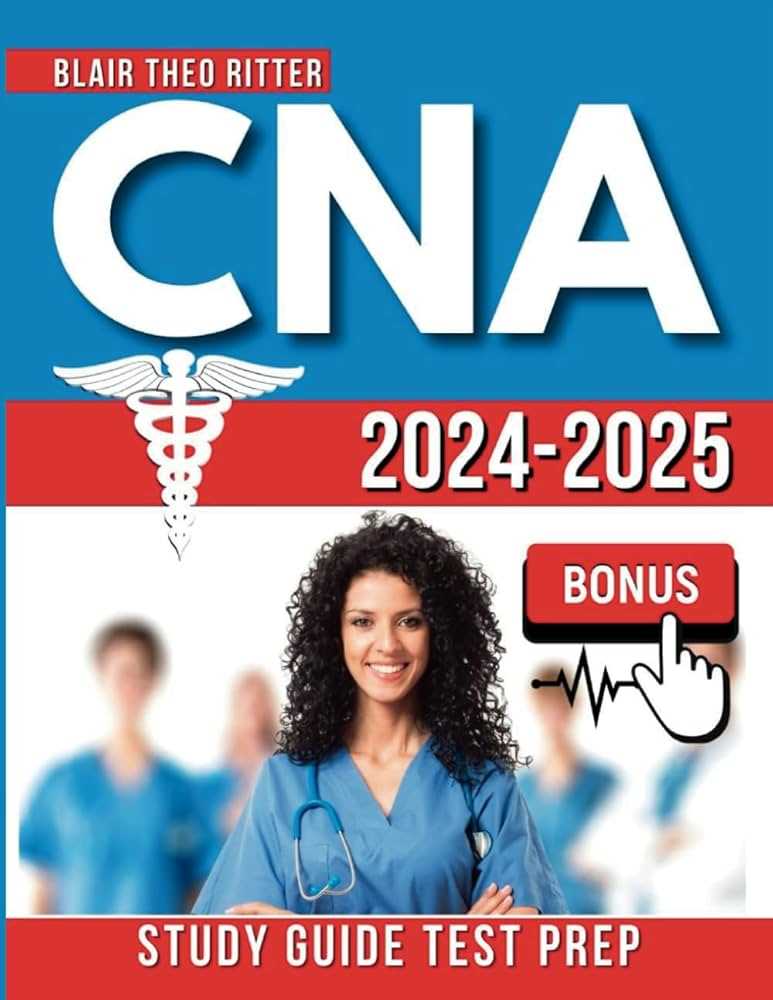
- Consistent Practice: The more you practice, the more comfortable you’ll become with the material and the test format. Regular review of key concepts helps reinforce your knowledge.
- Positive Visualization: Visualizing yourself successfully completing the test can have a powerful impact on your mindset. Picture yourself confidently answering questions and feeling accomplished afterward.
- Mock Tests: Take practice tests under timed conditions to build familiarity with the process and reduce anxiety. These simulate the real experience and help you gauge your readiness.
Maintaining a Calm and Focused Mindset
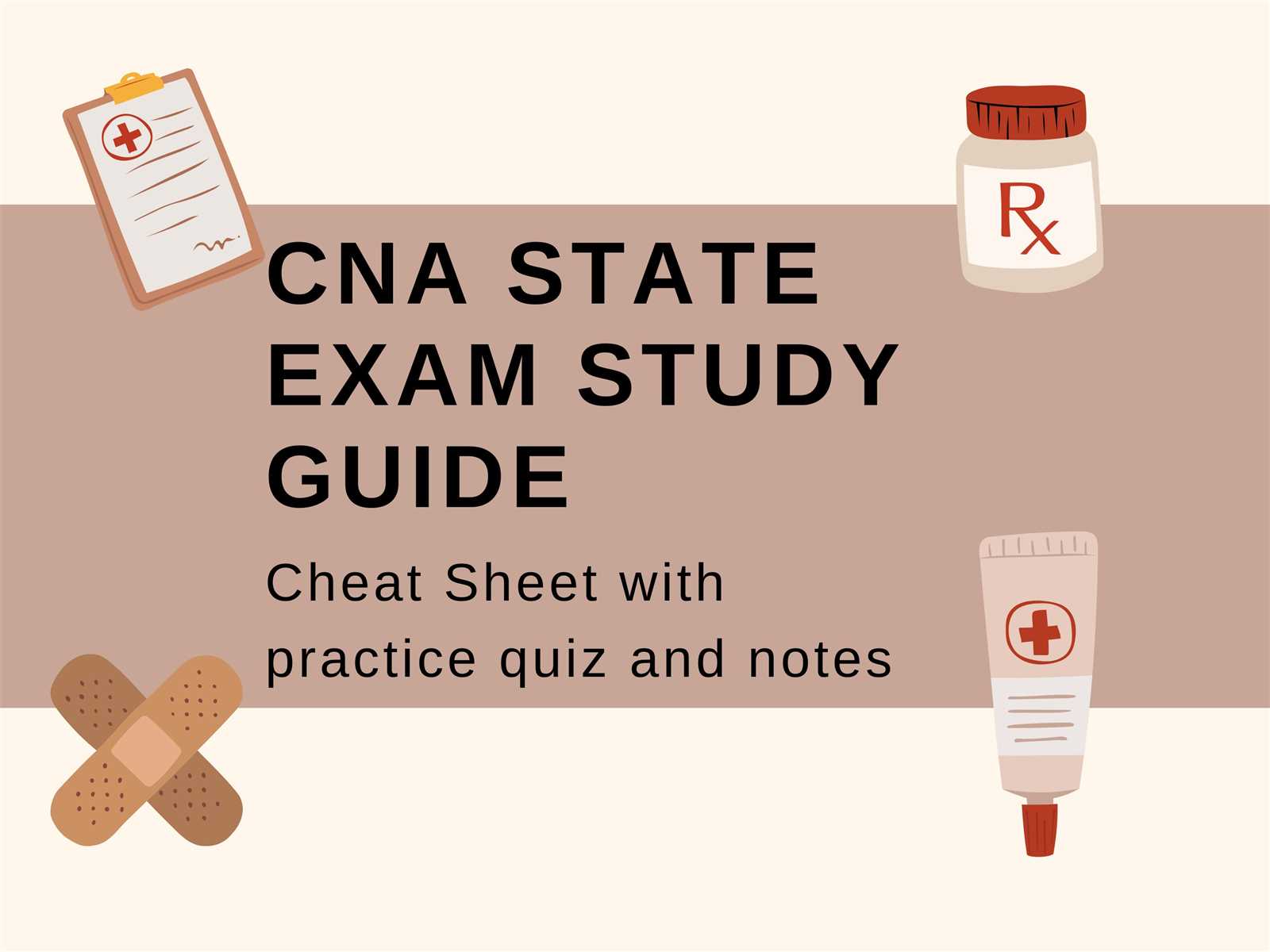
- Relaxation Techniques: Practice deep breathing, meditation, or other relaxation exercises to manage stress and stay focused during preparation and the test.
- Positive Self-Talk: Replace negative thoughts with affirmations. Remind yourself that you have prepared and are capable of succeeding.
By focusing on preparation and maintaining a positive mindset, you can significantly increase your confidence, leading to better performance and a greater chance of success on the test day.
What to Do After Taking the Exam
Once you have completed the assessment, it’s natural to feel a mix of relief and uncertainty. The period following the test is an important time to reflect on your performance, take care of your mental and emotional well-being, and prepare for the next steps in the process. How you handle this time can influence your overall readiness for what lies ahead.
Reflect on Your Experience
- Review Your Performance: Take some time to reflect on how you approached the questions. Consider areas where you felt confident and areas where you could have done better. This self-reflection can provide valuable insights for future growth.
- Avoid Overthinking: While it’s important to reflect, avoid excessively stressing over specific questions or answers. It’s best to trust in the preparation you’ve done and not dwell too much on any one aspect.
Take Care of Yourself
- Relax and Recharge: After all the hard work and focus leading up to the test, it’s crucial to allow yourself time to relax. Whether it’s spending time with loved ones, engaging in a hobby, or simply unwinding, make sure to give yourself a break.
- Stay Positive: Regardless of how you feel about your performance, maintain a positive attitude. Remember, you’ve taken an important step toward achieving your goals, and staying optimistic will help you move forward.
Prepare for the Next Steps
- Know When to Expect Results: Find out when and how you will receive your results. This will help you stay organized and avoid unnecessary stress while waiting.
- Plan for Further Actions: Whether it’s additional certification steps, job applications, or continuing your studies, begin considering what you’ll do next. Having a plan in place will keep you focused and motivated.
By taking care of yourself and planning ahead, you will be in a good position to move on to the next phase, no matter the outcome of your assessment.
How to Retake the Test
If you find that you did not pass the assessment, don’t worry–many individuals face setbacks before reaching their goals. The process of retaking the test is straightforward, and with proper preparation, you can significantly improve your chances of success. Understanding the steps to retake the test and making adjustments to your study routine will help you feel more confident and ready for the next attempt.
Understand the Retake Policy
- Review the Guidelines: Each state or organization may have specific rules about how long you need to wait before retaking the test. Be sure to familiarize yourself with these guidelines to avoid any surprises.
- Check Retake Fees: Some testing centers require a fee for retaking the test. It’s important to find out the cost and payment methods before scheduling your next attempt.
Prepare for Your Retake
- Review Mistakes: Take time to analyze your previous attempt. Identify areas where you struggled and focus your preparation on these topics. This targeted approach will help you build a stronger foundation for your next test.
- Take Practice Tests: Practicing with mock questions can simulate the test environment and improve your time management skills. The more you practice, the more familiar you will become with the question types and format.
- Consider Additional Study Resources: If your study plan wasn’t effective the first time, explore new materials, study groups, or courses to reinforce your knowledge.
Stay Positive and Motivated
- Maintain a Positive Mindset: It’s important to stay positive and not get discouraged. Many people need more than one attempt to succeed, so keep a resilient attitude.
- Set Clear Goals: Setting small, achievable goals each day will keep you focused and motivated. Celebrate progress, no matter how small it may seem.
By taking a proactive approach to the retake process and learning from past experiences, you can greatly increase your chances of passing the assessment. Stay focused, stay confident, and keep pushing toward your goals.
Importance of Staying Updated with CNA Rules
In the healthcare field, it is essential to remain informed about any changes in regulations, guidelines, and policies that govern professional practice. As rules evolve, staying current ensures that individuals continue to provide high-quality care while complying with legal and ethical standards. Regularly updating knowledge of these changes can have a significant impact on the quality of service, patient safety, and professional growth.
Why Keeping Up to Date Matters
- Legal Compliance: Staying updated helps avoid violations of laws and regulations, reducing the risk of penalties or legal actions.
- Improved Care: Implementing the latest standards improves the quality of care, enhancing patient outcomes and safety.
- Professional Growth: Knowledge of new rules and procedures supports personal development and keeps professionals competitive within the field.
Effective Ways to Stay Updated

- Continuing Education: Participate in workshops, webinars, and courses to stay informed about the latest regulations and practices.
- Networking: Engage with peers and mentors to exchange information and experiences regarding regulatory updates.
- Professional Resources: Subscribe to industry publications and online resources that provide regular updates on relevant rules and regulations.
Examples of Recent Regulatory Changes
| Regulation Update |
Description |
Effective Date |
| New Patient Documentation Standards |
Updated guidelines for recording and managing patient information to ensure accuracy and confidentiality. |
March 2024 |
| Updated Infection Control Protocols |
Revised procedures for preventing and controlling infections in healthcare settings to improve patient safety. |
June 2024 |
| Expanded Role of Healthcare Assistants |
Newly defined tasks and responsibilities for healthcare workers based on advanced training programs. |
July 2024 |
Remaining informed about new regulations and changes ensures that professionals stay compliant, enhance the care they provide, and continue to grow in their careers. Adopting a proactive approach to continuous education and staying connected with industry updates is essential for long-term success in the healthcare field.
